The world is experiencing tremendous technological improvement, and the rental market is undergoing several changes and trends that will affect all parts of the rental sector.
Technology is constantly changing and improving, for better or worse, year after year in terms of simplicity, speed, and sophistication. So, how can your rental business prepare to thrive in this ever-changing environment?
Technology has grown at an incredible rate over the last fifty years or more, and it does not appear to be slowing down anytime soon. There are numerous technology trends today, and new ones emerge regularly.
More than that, technology has acted as a catalyst for the next phase of innovation, and rental organizations can significantly benefit from investigating the possibilities of utilizing developing technologies to stay ahead of the competition.
Technologies that are Impacting Rental Market
Artificial Intelligence and Machine Learning
Nowadays, rental market tools are equipped with various sensors for data collection. This information is already used in day-to-day procedures such as GPS localizers, consumption statistics, and the automatic generation of a service call in a breakdown.
These sensors provide massive volumes of data that can be saved in the cloud. Machine learning can uncover new relationships between all of this data using sophisticated algorithms that can be trained.
Artificial intelligence will be the most intriguing addition to this working style, allowing these algorithms to train and analyze data totally on their own.
This method of data analysis can yield wholly new and unexpected insights, allowing you to be more efficient and provide better service to your clients.
Artificial Intelligence can be applied in a variety of ways. AI technology has been used by companies such as Uber, Google, and Apple to develop fully autonomous vehicles.
Consider the application of AI in conjunction with self-driving and rental vehicle operations.
Because many rental companies presently rent equipment with an operator, this might open up a slew of new opportunities.
The Internet of Things
The Internet of Things (IoT) is producing a massive amount of data that has the potential to transform the rental industry. Organizations may work more efficiently, better understand their processes, and become more profitable than ever before by utilizing IoT-related data.
When paired with analytical tools, IoT data becomes even more potent in driving new business insights. Typically, IoT data is used operationally for GPS data, consumption, or error notifications, as previously stated.
However, this information might be used predictively, ensuring that maintenance is completed before a defect occurs. Companies can forecast when equipment needs to be maintained through data analysis, revolutionizing asset management.
Maintenance is usually dictated by time or use. To ensure that their equipment is in good working order, rental businesses adhere to the OEM’s maintenance schedules.
However, if you can predict when equipment needs to be serviced, you may save money on wasteful early maintenance, enhance usage, and become more efficient.
Blockchain and Cryptocurrency
Thanks to the various information systems utilized in the rental industry, information is frequently fragmented.
Information regarding equipment and equipment-related information could be stored centrally and easily shared using blockchain technology. The purchase price, purchase date, warranty, recall information, and equipment specs are all OEM data that may be of interest.
Many rental organizations are trying to gain a clear picture of their equipment’s life cycle, and blockchain may be able to help.
The transaction can be made and validated via the blockchain, and the transaction is completed after the customer pays with cryptocurrency. It’s also feasible to set up a digital interaction between multiple parties before completing the transaction.
3D Printing
Rental equipment is frequently used in isolated and hostile environments such as mines, forests, and construction sites.
When equipment fails, it may be costly for the rental firm and the customer.
To reduce the risk of breakdowns, businesses keep vast quantities of replacement parts on hand to react swiftly if something goes wrong.
Rental companies can better predict when maintenance is required using IoT and predictive analysis, yet a breakdown can still occur without warning.
Rental companies might have access to an endless choice of spare parts using 3D printing technology, wherever and whenever they need them.
Consider the convenience of being able to print a spare part on-site rather than having to order and transport it.
Not all materials can be published; however, this is expected to change in the future. It reduces the chance of breakdowns and opens up new sales prospects. You might include 3D models for sale in your catalog instead of merely offering spare components.
Immersive Experience
People’s perceptions and interactions with the digital (and physical) world are changing thanks to augmented reality (AR), virtual reality (VR), and mixed reality. This innovative technology has the potential to alter the rental sector drastically. To increase overall safety, augmented reality can guide operators on how to use the equipment.
It is also used to look for the best equipment for the job. If a customer wishes to rent an aerial work platform, AR might help evaluate the size of the equipment needed by projecting the equipment in the actual space. AR may also interact with clients in a completely new way.
A consumer can initiate a Microsoft Teams call, which allows a rental company employee to see what the customer is seeing.
AR can also be utilized to simplify your maintenance procedure by supplying all relevant information to an engineer during the work order process.
The engineer has all the tools he needs to repair a piece of equipment as soon as possible, thanks to object recognition, guided maintenance, IoT data, and real-time information about your system.
Wrap Up – Future of the Rental Market
The above examples of developments and trends demonstrate how technology disruption is altering the game for equipment rentals and the rental industry.
To keep ahead of the competition, rental companies must investigate the use of these new technologies.
Rental firms who can take advantage of these opportunities will ultimately have higher customer satisfaction, be more successful, and become more profitable than those that do not.
Frequently Asked Questions
Is 2022 a buyer’s or seller’s market?
It appears that the real estate market in 2022 will continue to favor home sellers over home purchasers. The number of available homes for sale is reaching historic lows, and the supply-demand disparity is increasing.
Will the housing market crash in 2023?
While prices aren’t expected to fall, Fannie Mae predicts that price growth will be slower than usual in 2023. Home inflation will fall to 4.4 percent in the second quarter of 2023 and 2.9 percent by the end. Nonetheless, the pandemic is expected to permanently raise the floor for property values in the United States.

